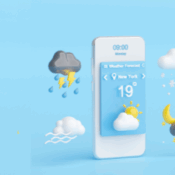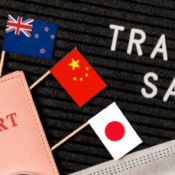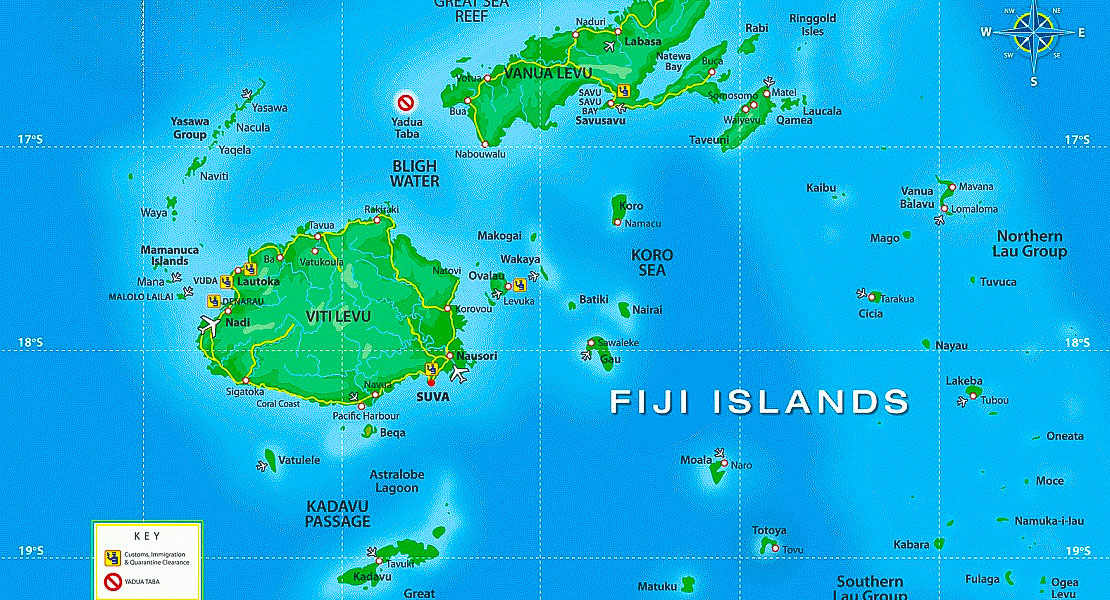Weather & Climate in Fiji

Weather & Climate in Fiji
With a beautifully mild climate and only slight temperature variations between seasons, Fiji is a true year-round destination. There’s no real ‘winter’ in our tropical paradise, just warm and warmer!
Here’s all you need to know about the best time to visit Fiji; our climate, the seasons and weather patterns to help you plan a holiday here.
What is Fiji’s climate like?
Located south of the equator, Fiji boasts a warm, comfortable sub-tropical climate. The average daily temperature consistently sits between about 26° and 31°C, evenings in the cooler months can get slightly chillier, but even in the peak summer months it doesn’t get unbearably hot.
Rainfall and humidity vary across bigger islands like Viti Levu and Vanua Levu due to tall mountain ranges and dominant southeast trade winds. The big islands are generally wetter in the eastern regions, which makes for brilliant diversity in landscape and lush tropical rainforest offering some world-class hiking and bird-watching opportunities. The drier, western regions of the larger islands typically feature dry forest and grassland perfect for hiking and big views. Smaller islands typically have a more consistent climate across their land area.
What are the seasons in Fiji?
There are only two seasons in Fiji, summer and winter.
Summer (November – April)
‘Summer’ in Fiji is known as the wet season, and includes the months from November to April. These months are characterised by long, warm days, short afternoon downpours that seem to come out of (and then disappear into) nowhere, fiery sunsets and higher humidity, so a water bottle to keep hydrated throughout the day is a must. Daily temperatures can soar to 31°C, with the average temp sitting at 25-26°C. January/February are the warmest months.
‘Winter’ (May – October)
Winter’ the dry season, offers shorter but sunnier days, with coastal areas getting a bit cool evening so take a light jacket to keep warm while sipping cocktails at the beach bar. The temperature is only slightly lower than the wet season, with an average temperature of 23-24°C and most days ranging from 19-28°C. July and August are the coolest months, and the average rainfall drops between 50-75% compared to the wetter months.
Water temperatures don’t fluctuate much staying a comfortable range throughout the year.
Does Fiji get tropical cyclones?
Fiji lies in a part of the Pacific which can be prone to tropical cyclones. These can occur in the summer season when temperature and rainfall soars between November and April. While they can be destructive, they’re also relatively rare with only a few causing major damage while others pass by with only short-lived disturbances.
If you’re visiting during this time, just keep an eye on the weather and follow any safety instructions given by the local authorities. Read our safety tips for travellers article for more information on what to do during a tropical cyclone.
Check out the Windy website or app for the most accurate weather forecast around your holiday dates.
When is the best time to visit Fiji?
The best time to visit Fiji really depends on your personal preference.
The peak tourist season coincides with the school holidays during the dry, winter season from May to October with pleasantly cooler temperatures and less rain. It also coincides with manta ray season and underwater visibility tends to be greater for scuba diving too so if you’re a keen diver, that’s the best time to go.There is another smaller spike in December and January during the festive season and Southern Hemisphere summer break. Peak season does mean more tourists though and therefore higher prices, so you’ll need to balance your budget vs. your need for perfect weather.
On the other hand, summer’s wetter season from December to January is ideal if you’re looking to take advantage of great value, off-season deals on flights and accommodation and don’t mind some short bursts of rain and more humid days.
But no matter when you choose to visit Fiji, you can expect warmth, sunshine and friendly locals who will go out of their way to make your trip unforgettable!




